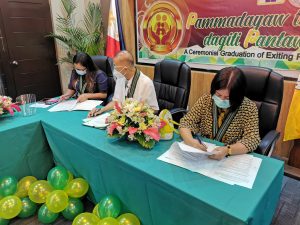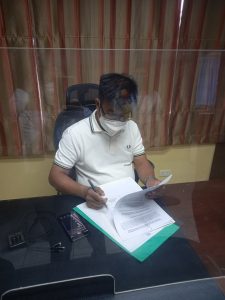
Tuguegarao City – Nine towns in Cagayan Valley reaffirmed their support to the Pantawid Pamilyang Pilipino Program (4Ps) through the signing of the Specific Implementation Agreements (SIA) between the Department of Social Welfare and Development Field Office 2 (DSWD FO2) and Local Government Units (LGUs) from June 8 to August 27, 2021.
The 9 LGUs out of the 87 towns covered by the 4Ps program include Enrile in Cagayan Province; Quezon, Tumauini and Burgos in Isabela Province; and Aritao, Solano, Quezon, Dupax Del Norte and Dupax del Sur for Nueva Vizcaya.
According to 4Ps Regional Program Coordinator, Vicenta Pamittan, a ceremonial signing of the SIA was conducted during the 4Ps Anniversary and Regional Graduation Ceremonies in Bayombong, Nueva Vizcaya on June 9, 2021 where the LGUs of Quezon and Solano as well as the provincial government of Nueva Vizcaya was first to sign.
Pamittan further expressed that as part of its continued advocacy, DSWD FO 2 has conducted consultative meetings with LGUs and Municipal Social Welfare and Development Offices (MSWDOs) to discuss the salient provisions of the agreement as well as facilitate its signing by the local chief executives for the remaining 78 towns.
The SIA details the specific roles and responsibilities of the Department as well as the LGU to ensure the efficient and effective implementation of the program by emphasizing the significant role of the LGU in effectively transitioning 4Ps families out of the program as provided by Republic Act 11310 or the Act Institutionalizing the 4Ps.

It further encourages LGUs to adopt the implementation of the Kilos Unlad Seven Year Social Case Management Strategy which includes the formulation of a Local Transition Plan, establishment of an operational system to monitor households who exited/graduated from the program, and provide funding for post service interventions to sustain the exited households.
It should be noted that Section 4 of RA 11310 stipulates that eligible households shall be provided conditional cash transfer to poor households for a maximum period of seven (7) years, to improve the health, nutrition and education aspect of their lives.

